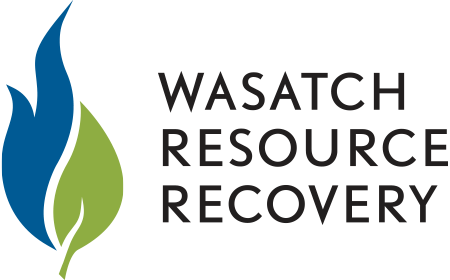Case Study Intermountain Healthcare
Intermountain Healthcare, together with their hauling partner Momentum Recycling, began diverting their food waste to Wasatch Resource Recovery’s anaerobic digestion facility in November 2018. So far, they have redirected over 80 tons of food waste from the landfill! They have also generously provided us with grant funds to implement a pilot program for residential food waste pickup.
Being such a large organization that encompasses a broad geographical area, we recognize there are many challenges that come with implementing an organics’ diversion program. Intermountain’s efforts have been impressive and we wanted to know more!
Check out our conversation with Steffani LeVels (Intermountain Healthcare System Waste Stream Program Manager) and Glen Garrick (Intermountain Healthcare Sustainability Director). They provide unique and valuable perspectives on how to implement a successful food waste diversion program, and how Intermountain has overcome various challenges.
- Did it take a long time to convince key decision makers to sign up for the program? What convinced them?
GG> Diverting food waste is a rare win-win decision in that it is good for the environment and it’s good for the organization financially. Though we have other operational challenges, getting executive level support is easy when a win-win situation is laid out to them.
- What are some of the challenges your location(s) have faced in sending food waste to Wasatch Resource Recovery?
SL> The biggest challenge is the workflow in getting the food waste outside to the Momentum containers because not all docks can stage the containers. Also, not all kitchens have a close exit to stage the outside bins. This can actually be a safety concern so you must have a clear safe work flow for staff to follow.
GG> The other primary challenge we have at Intermountain is the rural nature of a large number of healthcare sites. Getting organic waste to the Wasatch Resource Recovery is problematic when dealing with rural or remote locations.
- What surprised you about food waste diversion? Good or bad.
SL> We were surprised we could bag the food waste!
GG> Organic diversion is seen as a priority but until Wasatch Resource Recovery came along, it was very difficult to identify locations to send the organic waste. The Wasatch Resource Recovery opportunity is a great resource for the SLC region.
- What would you say to other organizations that are interested in pursuing food waste diversion to WRR? Any tips or suggestions?
SL> Go for it because we have this amazing opportunity in Utah and all that can participate should. Also, we get push back that it’s going to smell or get rodents but we have not had this problem. Last, find your environmental champions in the organization because they will help the program be successful.
- What other sustainability initiatives is your organization pursuing or involved in?
SL> We are pursuing a 45% recycling goal and food waste diversion falls under that goal. Food waste is some of the heaviest material in the trash, so reducing the amount that gets hauled to the landfill will help us achieve this goal.
GG> In addition to recycling goals, Intermountain currently has 9 environmental sustainability fundamentals. The 9 fundamentals are, Clean Air, Decarbonization & Climate Resilience, Efficient Energy Use, Efficient Water Use, Environmental Health, Sustainability Leadership, Sustainable Procurement, Regenerative Land Use, Waste Reduction, Reuse, & Recycling, and Sustainability Leadership.
- Anything else you would like to share?
SL> We encourage all community members that have the opportunity to properly dispose of food waste do so. We look forward to seeing how the program grows for residential customers. Our experience and support from WRR has been great!
GG> Intermountain prioritizes leading by example. We hope that staff, clients, and community members will be inspired to make changes at home.
WRR is thrilled to be partnering with Intermountain! They are a shining example of a company committed to sustainability and working diligently to implement successful programs. To get your business involved, please reach out to our team.





